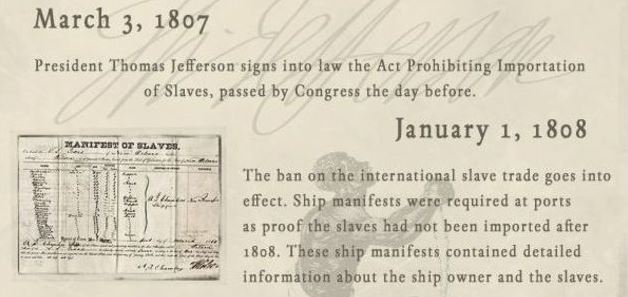Recently, Senator Tim Kaine spoke on the Senate floor and made a provocative statement: “The first African-Americans sent into the English colonies came to Point Comfort in 1619. They were slaves, they had been captured against their will, but they landed in colonies that didn’t have slavery — there were no laws about slavery in the colonies at that time.” Senator Kaine went on to say, “The United States didn’t inherit slavery from anybody. We created it. It got created by the Virginia General Assembly and the legislatures of other states. It got created by the court systems in colonial America that enforced fugitive slave laws.”
The mention of the year 1619 was certainly not random. It coincides with the New York Times’ 1619 Project, which attempts to conflate Britain’s slavery with that of the United States. Senator Kaine is wrong in two regards. First, the United States didn’t invent slavery — not even close. Slavery was universally practiced by every civilization at one time or another since time immemorial. And second, we did in fact inherit slavery from the British.
King George III had opposed anti-slavery laws and vetoed every anti-slave law in the colonies in 1774. So prolific was slavery that it would have been impossible to change it overnight. However, an early attempt to address the ills of slavery was made with the founding of the United States. Thomas Jefferson, in the first draft of the Declaration of Independence, directly condemned slavery:
He has waged cruel war against human nature itself, violating its most sacred rights of life and liberty in the persons of a distant people who never offended him, captivating and carrying them into slavery in another hemisphere, or to incur miserable death in their transportation hither[.] … And he is now exciting those very people to rise in arms among us, and to purchase that liberty of which he had deprived them, by murdering the people upon whom he also obtruded them: thus paying off former crimes committed against the liberties of one people, with crimes which he urges them to commit against the lives of another.
It may seem odd that Thomas Jefferson would condemn slavery when he himself owned slaves. He had inherited them at just 14 years of age. However, Virginia laws prohibited Jefferson from freeing his own slaves due to the fact that he was in debt. The mention of slavery was ultimately omitted to placate three Southern states that had objected. At the time, it was more important to get all the colonies on board with the Declaration of Independence. Otherwise, the American Revolution might have died in its infancy.

Thomas Jefferson Statue Torn Down in Portland
Ultimately, it was a declaration of independence and not a declaration of emancipation. Besides, at the time, the new states had much bigger concerns. They were currently at war with the superpower of their day for their very survival. Slavery would have to be addressed later. However, when Jefferson famously wrote “all men are created equal” in the Constitution, it was the first shot across the bow against the institution of slavery.
The slave trade was ultimately abolished in 1808, 31 years after our founding. Slavery was ended in 1865, 89 years after our founding. In all, slavery was abolished in the United States within a single lifespan. That the United States ended slavery in less than a century after its conception should be commended, not condemned. Other nations held slaves for far longer before ending the practice. In fact, many nations fought wars to acquire slaves, but the United States was unique in that it fought a war to end slavery.
Senator Kaine and other Democrats are guilty of anachronism. Anachronism is defined as the chronological misplacing of persons, events, objects, or customs with regard to each other. They have anachronistically imposed their modern-day ethics and values onto those who lived hundreds of years ago. There’s a saying that when you point a finger, there are three fingers pointing back at you. It’s not surprising, then, that Democrats, who were the pro-slavery and pro-segregation party, are now blaming all of America for their past sins. If anyone should take responsibility for America’s past slavery, it should be they.










